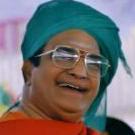*** Indian Premier League 2015***
-
-
-
-
Tell a friend
-
-
Most viewed in last 30 days
-

-

-

-

-

-

-

-

-
.thumb.jpg.ce42bb16ec102475a78c2087ce269c7d.jpg)
-

-

-

-

-
 32
32CherryGaru · Started
-

-

-

-

-

-

-


Recommended Posts